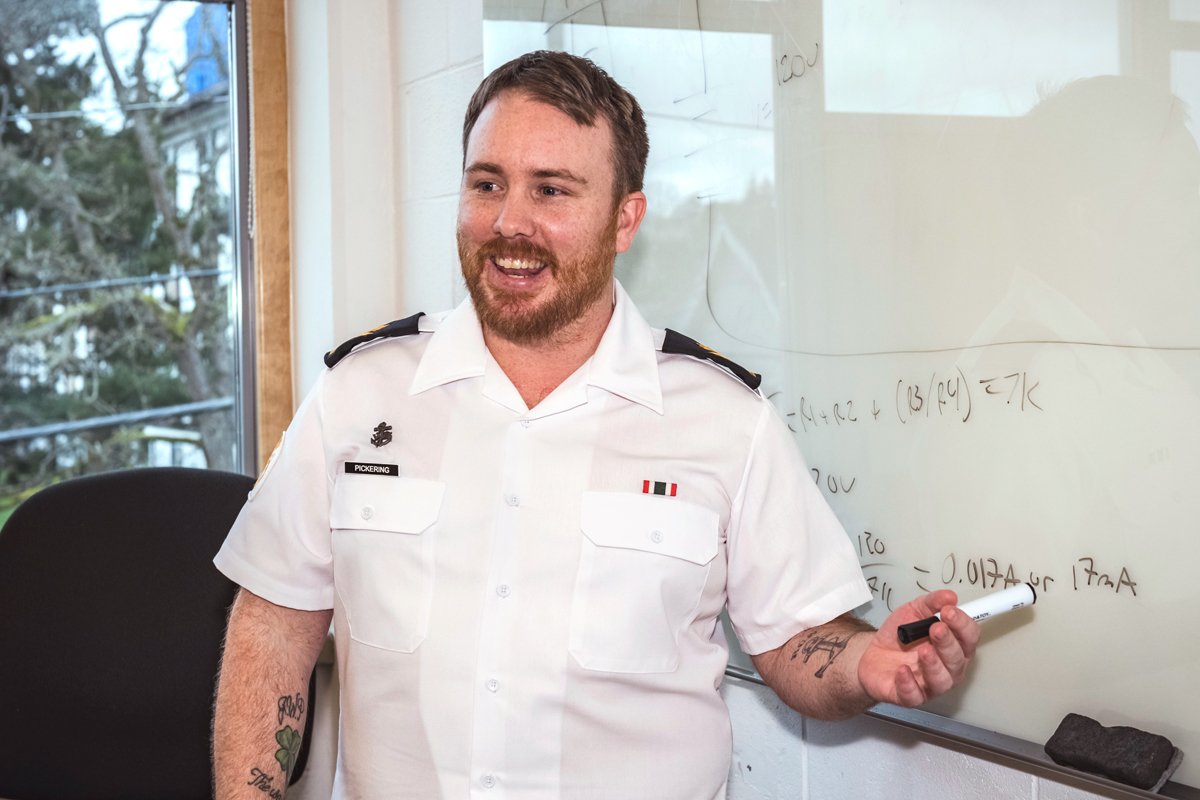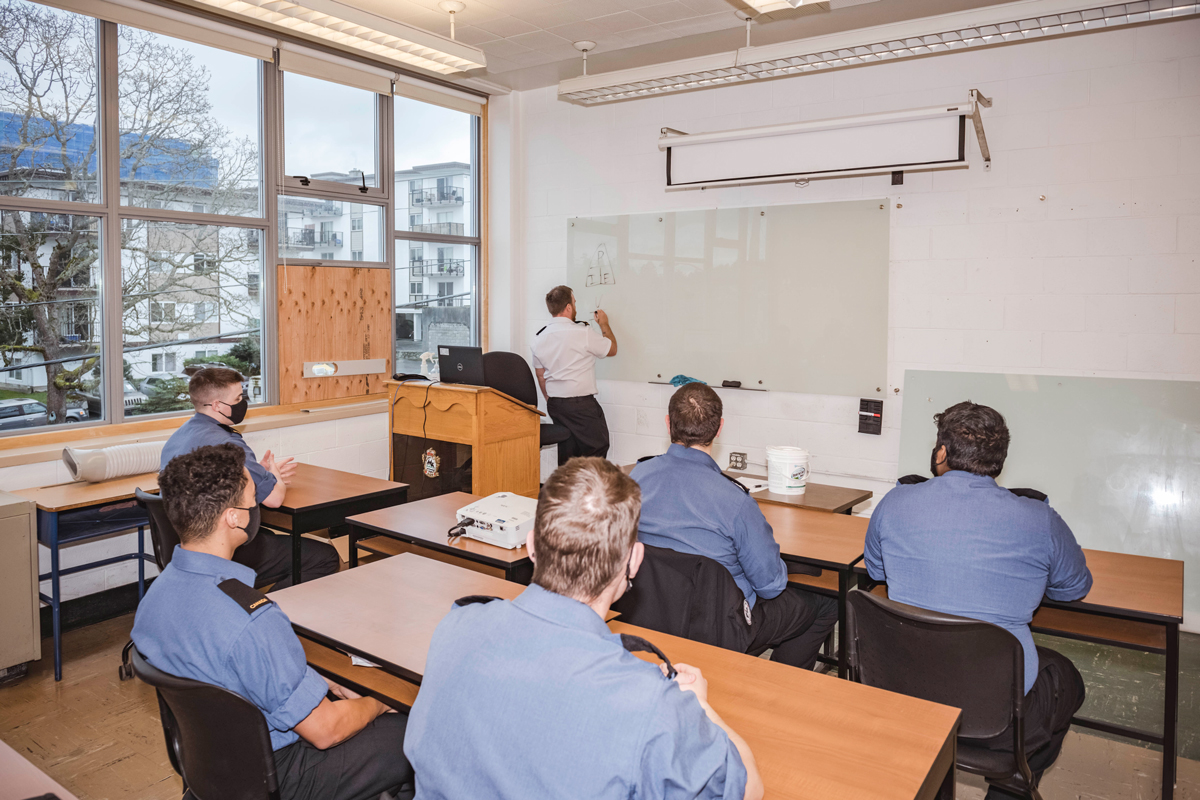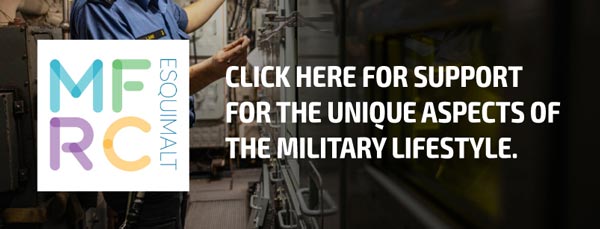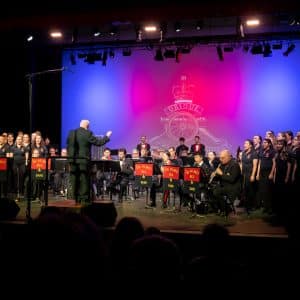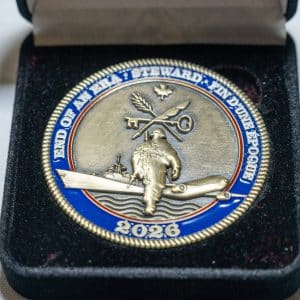Royal Canadian Navy
—
For Petty Officer Second Class (PO2) Daniel Pelletier, receiving a letter from the grateful parents of a student with learning disabilities was unexpected and touching.
A 20-year veteran and instructor at Naval Fleet School (Pacific), PO2 Pelletier teaches classes in the Marine Technician trade.
Along with fellow instructors Petty Officer First Class David Van Egmond and Master Sailor Joshua Pickering, PO2 Pelletier was thanked by the student’s parents for showing “exceptional leadership and dedication, in particular to the development of future sailors.”
Current Canadian Armed Forces policies and directives make it plain that every support possible should be given to those sailors with learning disabilities to promote equity and understanding. Specifically, regarding the navy, this is a practice that is in place across its entire training system.
“Fostering a respectful culture so that we generate personnel with the right skills by enabling our people, both our sailors and our instructors, is at the heart of what we do,” says Captain (Navy) Matthew Coates, Commander, Naval Personnel and Training Group, which is the RCN’s principal command for naval education, training, and course development.
Putting these policies into practice takes time, dedication, compassion, and the willingness to quickly adapt any program to accommodate those with learning disabilities.
“I just want to ensure that all my students at the school have the very best start and foundation possible so they can build upon that experience and enjoy a long and successful career,” says PO2 Pelletier.
In this case, the coursework involved a lot of technical online reading, which can be difficult for someone with certain learning disabilities. The parents of the sailor, who is just starting a career in the navy, were appreciative of the efforts made by the three instructors to ensure their child was able to successfully complete the course.
“Some would say these instructors were just doing their job, and although this is true, we all know there is a difference between just doing your job and caring about the job you are doing,” the parents wrote, noting the instructors were receptive, asked what the young sailor needed, and found ways to adjust the course, while still ensuring the course content was followed and standards met.
This is standard practice according to Chief Petty Officer First Class (CPO1) Pascal Harel, the school’s Chief Petty Officer.
“This is something we do every day,” he says. “We are instructors, and we have to find ways to help people learn. We want those with disabilities to learn like any other student. When we get students with disabilities, they often have different needs, and we try our best to accommodate them. The instructors do what they can to ensure all students are successful.”
For PO2 Pelletier, he makes a point of speaking to the students to see how he can best support their learning.
“I always offer up my free time in the mornings and at lunch for additional help for those who need it. When I’m teaching my classes, I pay attention to my students to make sure that everyone is following along well, and I try to see who might be needing additional assistance. When questions are asked by one student in class, I make sure to include the entire class in my explanation so that I know everyone is on the same page.”
To ensure no student falls through the cracks, PO2 Pelletier and his colleagues monitor everyone’s test scores as each class progresses.
“If a student fails a quiz, for example, we use a tool called a Training Experience Difficulty, which allows the school to be aware a student is having difficulty and helps us as a team to check on that student to see what kinds of support they need.”
Fostering an inclusive and equitable training environment enables students to demonstrate their ability to achieve a specific standard, placing them on the same level playing field as their peers, explains CPO1 Harel.
“We have a duty to accommodate all students and to help end stigmas,” he says. “Traits of caring and dedication in our instructors show good leadership and help young sailors achieve success in their naval careers.”

